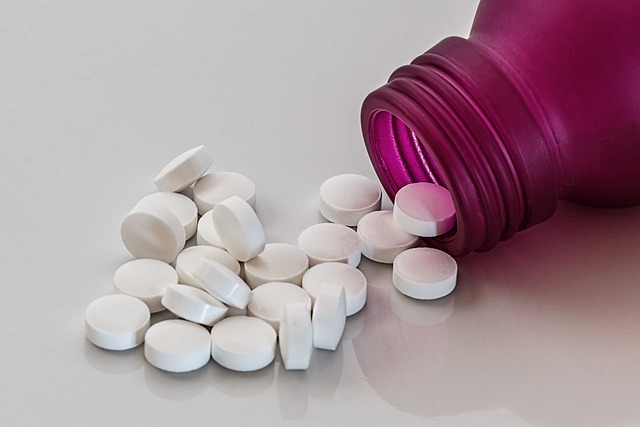Suboxone clinics play a crucial role in addressing the complex issue of opioid addiction. While medication-assisted treatments like Suboxone have long been the cornerstone of these clinics, there is a growing recognition of the importance of holistic approaches in enhancing recovery outcomes. By combining traditional medical interventions with holistic practices, suboxone clinics are embracing a more comprehensive approach to addiction treatment.
What are Holistic Approaches?
Holistic medicine is a branch of healthcare that considers the whole person – mind, body, and spirit – in the quest for optimal health and wellness. It recognizes that all aspects of an individual’s life – physical, mental, emotional, and social – are interconnected and influence one another. Rather than focusing solely on symptoms or specific conditions, holistic approaches aim to restore balance and promote overall well-being.
Holistic approaches encompass more than just physical health; they consider mental and emotional well-being too. By treating the person as a whole, holistic medicine targets the root causes of issues instead of just the symptoms.
How is Holistic Medicine Defined?
Treating the Whole Person
At its core, holistic medicine is about treating the person, not just the disease. It takes into account a person’s lifestyle, environment, and personal beliefs, recognizing that these factors play a significant role in overall health. By understanding the unique circumstances of each individual, holistic medicine practitioners are able to tailor treatment plans that are specific to their needs.
The Body’s Innate Healing Power
One of the key principles of holistic medicine is the belief that the body has an innate ability to heal itself. Holistic approaches support the body’s natural healing by promoting a healing environment and utilizing methods like nutrition, exercise, stress relief, and alternative therapies.
Balancing Physical and Emotional Recovery in Addiction Treatment
Holistic medicine delves deeper than just treating symptoms; it focuses on the person as a whole—mind, body, and spirit. Emphasizing a balance of physical wellness with emotional and spiritual well-being, this approach aims to address the root causes of health issues. In the context of addiction, the Suboxone clinic at Confidant Health embodies this holistic approach, merging medical care with all-encompassing support for comprehensive recovery.
What is the Philosophy Behind Holistic Healing?
Innate Healing: The Core of Holistic Philosophy
The philosophy of holistic healing holds that the body has an innate capacity for self-healing. By supporting the body’s natural healing mechanisms and addressing underlying imbalances, holistic approaches seek to enhance the body’s ability to heal itself. This philosophy extends beyond physical healing to include mental and emotional well-being as well.
Emotional Balance: Addressing Mind and Spirit
When it comes to mental and emotional well-being, holistic medicine recognizes the importance of addressing the root causes of stress, anxiety, and other emotional imbalances. By incorporating techniques such as meditation, mindfulness, and counseling, holistic practitioners aim to promote emotional well-being and overall balance in their patients.
Preventive Care: The Holistic Lifestyle Approach
Holistic medicine emphasizes the importance of a healthy lifestyle and preventive care. By focusing on maintaining a balanced diet, engaging in regular physical activity, and adopting stress management techniques, individuals can take proactive steps towards preventing illness and maintaining optimal health.
The Comprehensive Nature of Holistic Medicine
Holistic medicine considers the entire person—mind, body, and spirit—aiming to restore balance and well-being. It empowers individuals with personalized plans to actively participate in their health journey, leading to a fulfilling life.
What is the Role of Suboxone Clinics in Opioid Addiction Treatment?
Suboxone, a combination of buprenorphine and naloxone, has long been used in the treatment of opioid addiction. It helps to reduce withdrawal symptoms and cravings, making it easier for individuals to discontinue opioid use. Suboxone clinics have traditionally focused on providing medication-assisted treatment, but a shift towards holistic methods is now taking place.
The Traditional Use of Suboxone in Treatment
Suboxone is typically prescribed as part of a comprehensive treatment plan that includes counseling and support. It works by binding to the opioid receptors in the brain, blocking the effects of opioids and reducing cravings. This medication has proven to be effective in reducing opioid misuse and promoting long-term recovery.
The Shift Towards Holistic Methods
While medication-assisted treatment remains a vital component of Suboxone clinics, there is an increasing recognition of the value of holistic approaches in supporting recovery. Holistic methods address the multifaceted nature of addiction, addressing not only the physical aspect but also the emotional, psychological, and social aspects of the individual.
How are Holistic Approaches Integrated in Suboxone Clinics?
Suboxone clinics are now integrating holistic approaches to enhance the effectiveness of treatment and support long-term recovery. By incorporating various holistic practices, they aim to address the underlying causes of addiction and promote overall well-being.
The Importance of Mind-Body Connection
One key aspect of holistic approaches in suboxone clinics is recognizing the mind-body connection. Thoughts, emotions, and beliefs can significantly impact an individual’s overall health and well-being. By incorporating mindfulness practices, meditation, and stress reduction techniques, suboxone clinics seek to cultivate a positive mind-body connection that supports healing and recovery.
The Role of Nutrition in Recovery
Nutrition plays a vital role in recovery from addiction. Substance abuse often leads to nutritional deficiencies that can exacerbate physical and mental health issues. Suboxone clinics are now implementing nutrition counseling and education programs to help individuals develop healthy eating habits, restore nutrient levels, and support overall recovery.
The Impact of Physical Activity on Treatment
Physical activity has numerous benefits for individuals in recovery. It aids in the management of stress, improves mood, promotes better sleep, and enhances overall physical health. Suboxone clinics now incorporate physical activity as part of their holistic approach, offering exercise programs and encouraging individuals to engage in activities that promote overall well-being.
Conclusion
Suboxone clinics are increasingly embracing holistic approaches to enhance the effectiveness of treatment for opioid addiction. These approaches recognize the interconnectedness of mind, body, and spirit and aim to restore balance and promote overall well-being. While medication-assisted treatment remains a critical component, integrating holistic methods such as mindfulness, nutrition, and physical activity can support individuals in their recovery journey. As the field continues to evolve, suboxone clinics will likely further explore and refine holistic approaches to improve long-term recovery outcomes.


